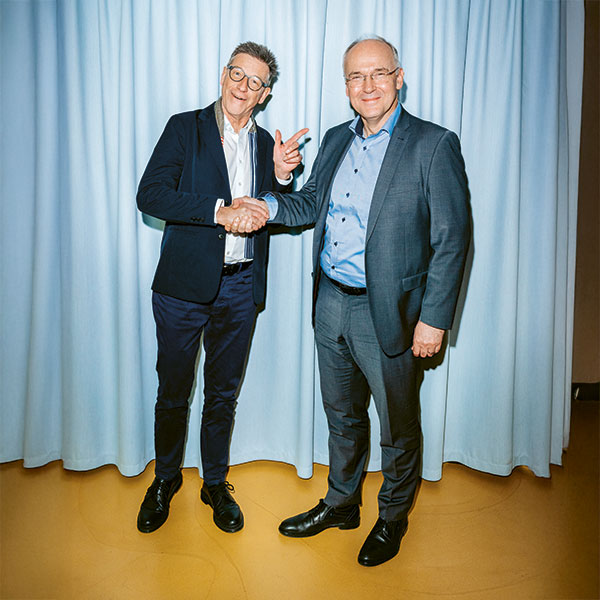COLUMN
Matthias Egger: No attempts at persuasion, just plain honest information
Researchers should remain objective in times of crisis, and say openly where there is uncertainty. Matthias Egger, President of the National Research Council, argues in favour of transparent communication.

When researchers come across as pursuing a mission of their own, trust is lost, says Matthias Egger. | Image: Adrian Moser/SNF
Media training is a recurring topic in our scientific careers. It is instructive to compare the ‘Top Five Tips for Communicating Science’ as presented in ‘New Scientist’ in 2009 with the ‘Five Rules for Evidence Communication’ as published in ‘Nature’ in November 2020. The former were penned by the marine biologist-turned-filmmaker Randy Olson and his book entitled ‘Don’t Be Such a Scientist’: improvisation, marketing, dramatisation, visualisation and telling a good story. They happen to coincide with my personal experiences of media training. We are supposed to come across as natural, spontaneous people, they tell us, not as boring scientists. We shouldn’t worry if what we say is not 100 percent scientifically correct. Our research may well have produced interesting results, but it’s not enough just to summarise them. We have to bring them to the people, packaged in a good story, with simple language and catchy graphics.
David Spiegelhalter is the Winton Professor of the Public Understanding of Risk at the University of Cambridge (UK), and he and his colleagues agree that these are all proven communication techniques. But they still bear dangers. For example, during the Covid-19 pandemic, we repeatedly witnessed the failure of just such a marketing approach to science communication. In response, Spiegelhalter and his interdisciplinary team have developed their recently published five rules that differ significantly from Olson’s: inform, don’t persuade; offer balance, not false balance; disclose uncertainty; discuss the quality of the evidence; and fight misinformation.
Expertise, honesty and good intentions can build the trust that is essential in a crisis. When scientists portray the impression of being on a mission of their own, trust is quickly lost. The same happens when scientists simply ignore issues that are important to many others. We need to tell the whole story, including what we don’t know. Many of us, myself included, underestimated this virus and now wish we had done a better job of highlighting uncertainties, such as in the emergence of variants or the transmission through aerosols. Ultimately, we need to anticipate how our statements could be misunderstood or misused by others.
There is still much to learn about scientific communication in crises. In my opinion, the article by Spiegelhalter’s team in ‘Nature’ should be compulsory reading.




